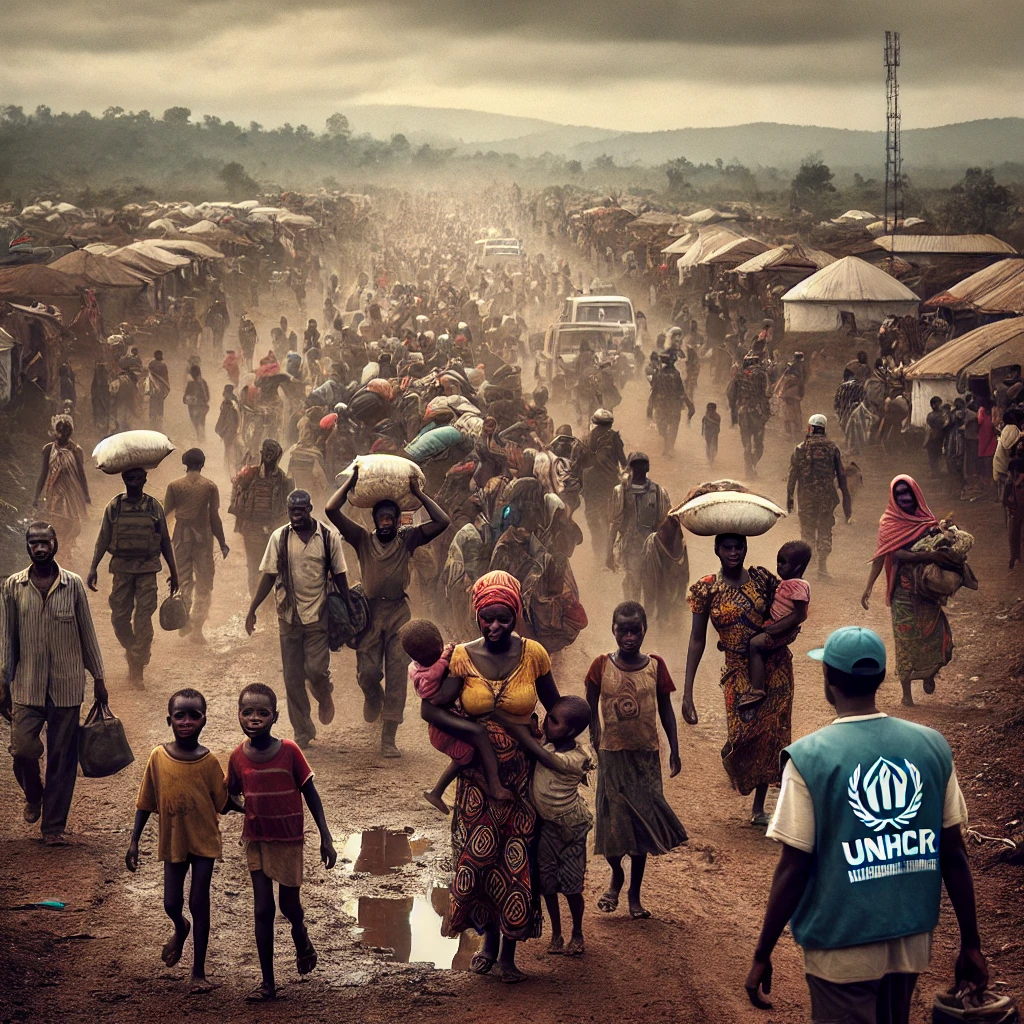DRC Urged to Take Lead in Protecting 7 Million Displaced as Crisis Deepens
“The ongoing occupation of territory by these armed groups has devastating consequences,” said Gaviria Betancur.

- Country:
- Congo Dem Rep
The Democratic Republic of the Congo (DRC) must step up and take the lead in protecting the more than 7 million internally displaced persons (IDPs) who have been uprooted by a convergence of armed conflict, ethnic violence, conservation-linked evictions, and natural disasters, a top United Nations expert warned this week.
Paula Gaviria Betancur, the UN Special Rapporteur on the human rights of internally displaced persons, issued the call following the conclusion of her official visit to the DRC, a country she described as enduring “one of the world’s largest and most protracted internal displacement crises.”
Displacement Fueled by Conflict and Insecurity
The eastern provinces of North Kivu and South Kivu remain epicenters of the humanitarian crisis, where offensives by the Rwandan-backed armed group known as the March 23 Movement (M23 or AFC/M23) have displaced hundreds of thousands of civilians. The UN and human rights groups have repeatedly accused M23 of committing grave violations, including massacres, forced labor, sexual violence, and the use of civilians as human shields.
“The ongoing occupation of territory by these armed groups has devastating consequences,” said Gaviria Betancur. “Displaced civilians have endured horrific abuses that amount to serious violations of international human rights and humanitarian law.”
She emphasized that the crisis extends beyond armed conflict. Large-scale evictions linked to environmental conservation projects and the expansion of mining and extractive industries have also pushed vulnerable populations off their land—often without due process or compensation.
A Call for Stronger Government Leadership
While acknowledging the DRC Government’s initiatives to develop legal and policy frameworks on internal displacement, Gaviria Betancur said that leadership remains inadequate. She emphasized that as foreign aid dwindles, the Government must step into a greater leadership role in managing the crisis.
“State sovereignty comes with responsibilities,” she said. “The Government cannot outsource protection and assistance for displaced persons to humanitarian actors indefinitely. There must be coordinated, accountable, and inclusive responses led by national institutions.”
The DRC’s response has been hampered by decades of conflict, weak governance, and resource constraints. Despite efforts to improve land tenure systems and engage in conflict resolution at the local level, progress has been slow and uneven.
Humanitarian Crisis Deepened by Funding Gaps
Humanitarian agencies, including the UN Refugee Agency (UNHCR), World Food Programme (WFP), and Médecins Sans Frontières (MSF), have struggled to meet basic needs for displaced populations due to significant funding shortfalls. In 2024 alone, the UN’s Humanitarian Response Plan for the DRC remained less than 40% funded, forcing aid groups to scale back food distribution, shelter support, and medical assistance.
“Cuts in foreign aid have had a devastating impact,” said Gaviria Betancur. “This has left many IDPs without access to food, water, shelter, or medical care—let alone education and livelihoods.”
She urged international donors not to abandon the DRC, but rather to redouble efforts to support durable solutions, including voluntary return, local integration, and relocation of displaced persons in accordance with their rights and preferences.
The Resilience and Dignity of the Displaced
Despite the dire conditions, the Special Rapporteur said she was inspired by the determination and dignity of displaced Congolese she met during her visit.
“What they asked for was not charity, but a chance to go home safely, rebuild their communities, and live in peace,” she noted. “These are simple but powerful demands that must guide the Government’s and international community’s actions.”
Next Steps and International Scrutiny
Gaviria Betancur is scheduled to present a comprehensive report on her findings to the United Nations Human Rights Council in June 2026. The report is expected to offer specific recommendations for the Congolese Government, humanitarian actors, and donors to improve the rights and welfare of the displaced.
Her visit marks a critical opportunity for both national and international stakeholders to reassess their approach to one of Africa’s most pressing humanitarian emergencies.
“The people of the Democratic Republic of the Congo have endured immense suffering,” Gaviria Betancur concluded. “They deserve more than temporary aid—they deserve justice, security, and lasting peace.”
ALSO READ
Judge orders US officials to retain control of migrants sent to South Sudan in case removals were unlawful, reports AP.
2 COVID-19-linked deaths in Maharashtra since January, 52 patients under treatment
Kid Cudi Takes the Stand: Unmasking the Dark Secrets of Diddy's Alleged Sex Trafficking
IMF's Gopinath Warns of U.S. Debt Challenges Amid Trade Uncertainty
Kalyan building collapse: unauthorised work suspected to be cause; flat owner arrested










